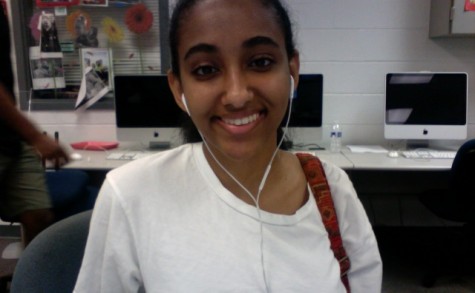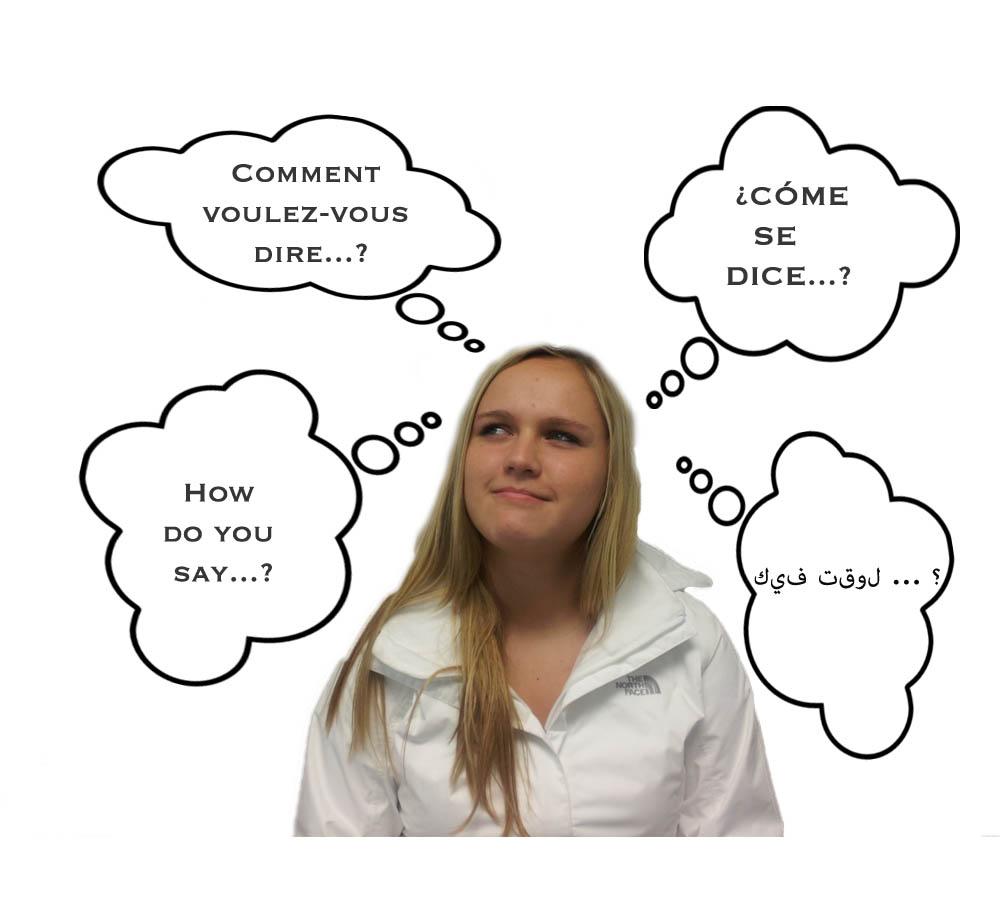Comment voulez-vous dire …?
Most European and Asian countries have students that have mastered learning more than three languages whereas American students struggle to comprehend one. Recently, there has been a debate over the degree to which students learn and maintain the foreign languages they learn in U.S schools. Despite a strong language department and an extremely diverse student body, there seems to be a lack of mastering other languages.
“Throughout my life, I have found that being able to speak many languages is a very good skill,” Senior Amelie Trieu said.
Countries around the world, such as China and Germany, desire all students to be fluent in English. Demographically, Europeans tend to speak more than two languages aside from the native language. Other than English, students of the United States fail to have basic understandings of the foreign language they’re required to learn in school.
Powerful figures, such as President Barack Obama, stresses the importance of being bilingual. As foreign people come to the United States, they must adjust to English in order to interact with Americans but when Americans travel to other countries, the people have to speak English in order to communicate with us. The United States seems to lack a factor that all progressive societies have been developing.
Like the United States, Annandale is known for having a vast demographic. Although the country fails to be bilingual, AHS seems to be very knowledgeable in other languages.
Senior Amelie Trieu is from a Chinese ethnicity and fluently speaks English and Cantonese (a dialect of Chinese). Additionally, she is learning Mandarin Chinese at a Chinese school, French at AHS and knows basic Vietnamese.
“It is a necessity to know multiple languages in my family,” Trieu said. “My parents primarily taught me different languages, by speaking it and teaching me how to read. I have gone to Chinese school since I was in elementary school, so I have had different teachers teach me Mandarin.”
With Trieu’s knowledge of numerous languages, she is able to fluctuate them in her household. “I learned Cantonese first, at home, and French when I started school. At home, my mother speaks Cantonese with me and my sister; Vietnamese and French with my father; my father speaks English, Vietnamese and French with me and my sister; my sister and I speak English and Cantonese together.”
Still, with many students fluent in other languages, the student body seems to have mixed opinions on whether the foreign language department actually guides students to be fluent in the language.
“I have taken French for 5 years, which I have immensely enjoyed,” Trieu said. “I feel like I am capable of speaking French, but I would still like to improve my language skills. Annandale’s foreign language department is really good – the teachers are very skilled and willing to help students. In addition, there are so many classes offered, like Arabic and Spanish for Fluent Speakers.”
Junior Doreen Amoaful begs to differ. She is fluent in English and Twi. “My first language was English. I wasn’t exposed to Twi until I was six and I was forced to learn it when I went Ghana over the summer because they don’t speak anything else.”
Though Amoaful is bilingual, she has a hard time learning a language in school. “I take French 4. All we do in class is conjugate words and study vocabulary. We don’t really communicate with each other. Overall, there’s no preparation; if I went to France, I’d be doomed.”
Junior Abdul Mohammed is only fluent in English. Coming from an Ethiopian ethnicity, also known as Habesha, he fails to learn Amharic. “I haven’t really tried to learn Amharic; I guess I’m just lazy,” Mohammed said.
Though he is monolingual, Mohammed knows the importance of being bilingual. “I feel it’s essential to know another language because you’re more cultured and it helps with job opportunities. The foreign department doesn’t really help students learn the language. I took Spanish for two years and now I take Arabic. I can’t remember anything I learned in Spanish.”
Amelie Trieu feels learning other languages is essential. “ It makes things easier when I travel, especially since I do not have to consult a phrasebook or translating tool. Surprisingly, I also have found it handy in other classes. For example, the English language borrows a lot of words or expressions from French so when I encounter them, I am able to pronounce them correctly. I think it is important that kids should learn other languages. Especially in such a globalized world and diverse community, it is necessary to learn the language(s) and culture(s) of other people. Even if it’s hard to learn, it will be worth it in the end.”

Nuhami Mandefro is the Entertainment Editor for the A-Blast. She is a senior and has been a journalism student for since her freshman. This is her second...







